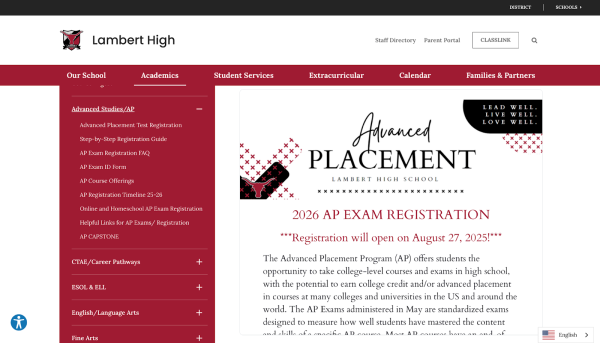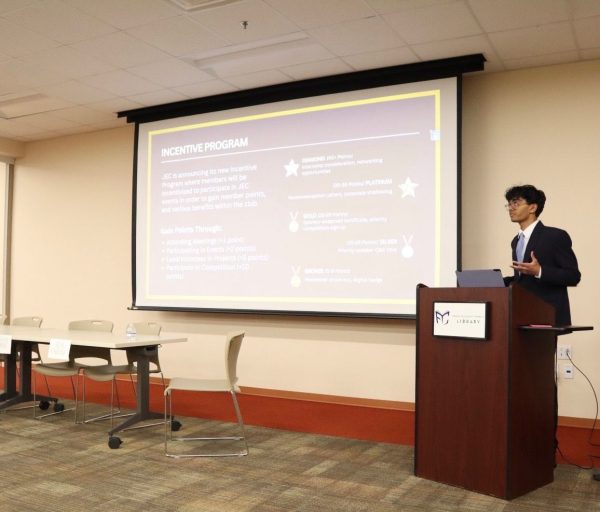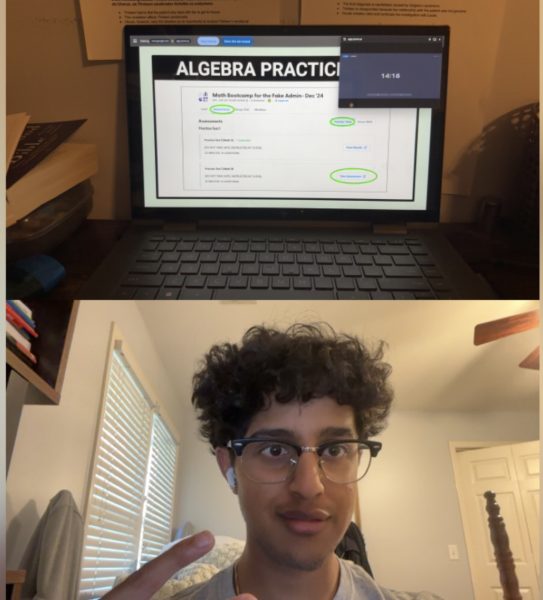What Gonzales v. Google Means for our “For You” Pages

Lambert junior Ashan Galhena reading about the takeaways of Section 230. Taken by Ashley Choi.
On February 21, the Supreme Court held oral arguments over Gonzalez v. Google, a case that may pertain to the reinterpretation of Section 230.
The case of Gonzalez v. Google stems from November 2015, when a series of coordinated terrorist attacks killed 130 people in Paris. Noheli Gonzalez was one of the victims in the November 2015 Paris Attacks. Because of her death, her remaining family believed that Google and its platforms were at fault for the coordinated terrorist attacks, due to their system of recommending specific content specialized for a user.
The family believes that Google and Youtube’s catered system of algorithms is responsible for recommending recruitment content for the terrorist organization, The Islamic State of Iraq and Syria. Google defended these accusations with Section 230.
In short, Section 230 protects online companies from civil liability of content made on their platforms. This means that any harmful or inappropriate content will fall on the responsibility of the creator, and not the online platform that allowed for the content to be posted. Any damages resulting from such content will root back to the third-party users.
Depending on the outcome of Gonzalez v. Google, a possible, but unlikely result of the case, may be the repealing of Section 230. If this does come into play, the repealment would result in stricter regulation upon what can be posted on online platforms. Algorithms will become less catered towards the user’s interest, and become uniform in order to avoid potential civil conflict.
Lambert junior Ashan Galhena finds the potential outcome of the Gonzalez v. Google case in the gray area.
“I think the internet would change definitely,” Ashan said. “Whether that’s a good or bad thing it remains to be seen. But I don’t think we can get away with saying that nothing will come out of [Gonzalez vs. Google].”
While the case is most likely to end in Google’s favor, there are beliefs that Google and other online parties should make adjustments towards their algorithms.
“I believe that as it stands right now, Section 203 is a bit too strict on supporting all algorithmic decisions,” Ashan commented. “It’s technically not [Google’s] fault. They just need to change their algorithm so that it doesn’t become a problem in the future.”
Your donation will help support The Lambert Post, Lambert High Schools student-run newspaper! Your contribution will allow us to purchase equipment and cover website hosting costs.











